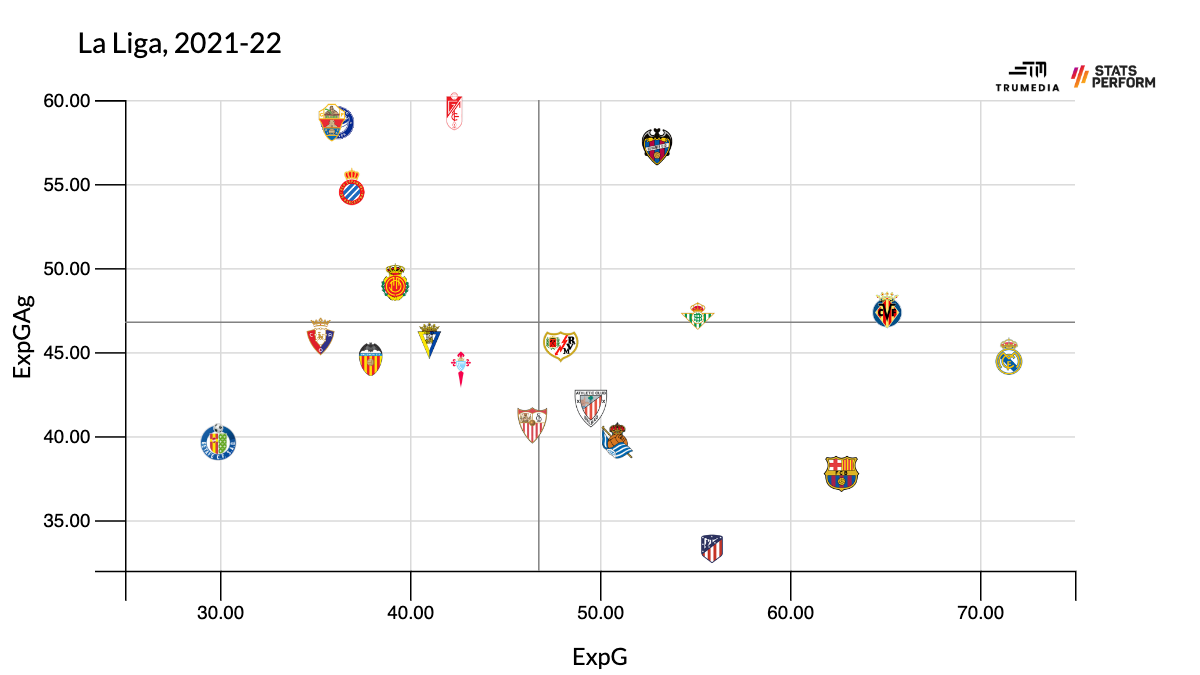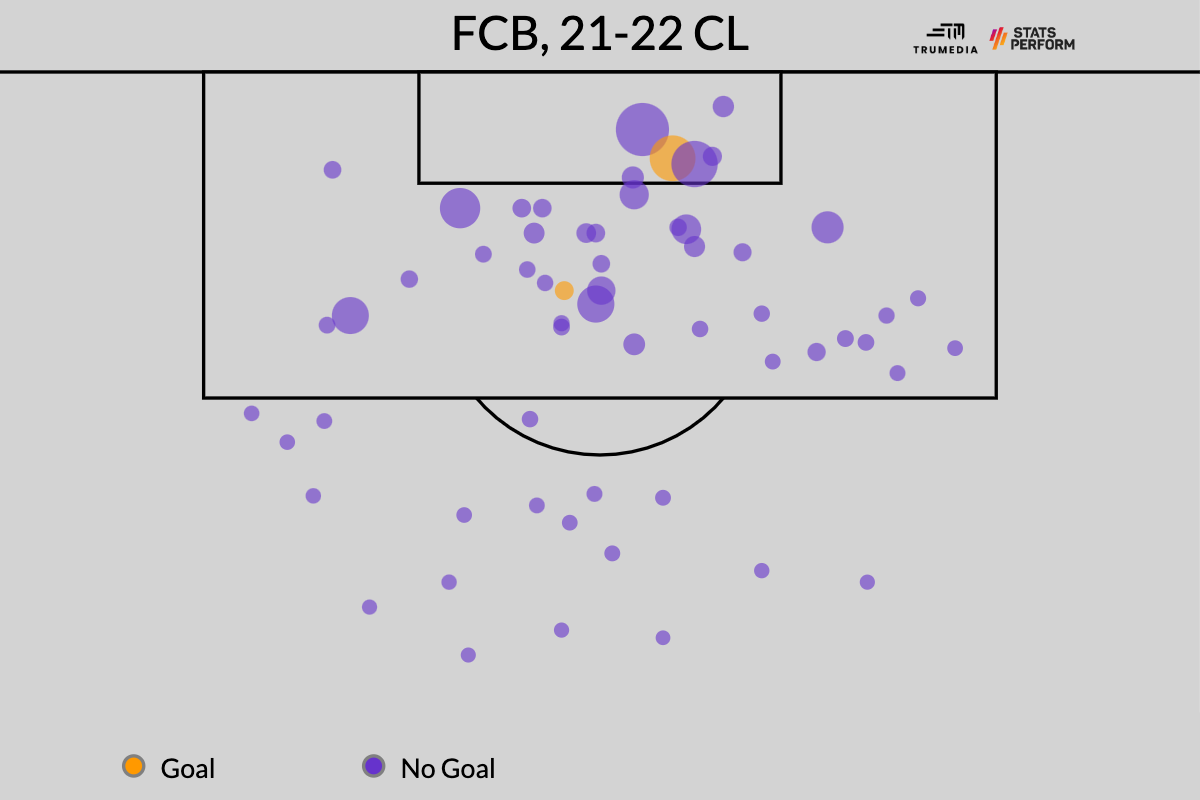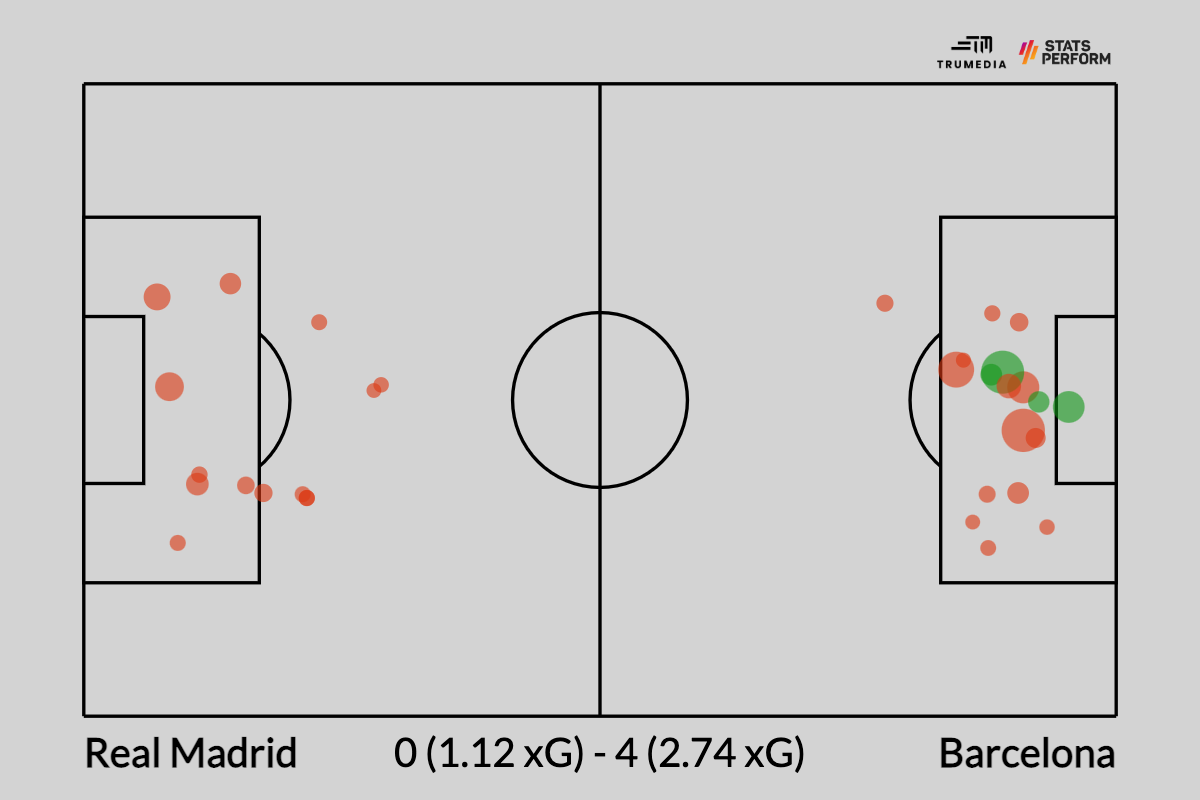A month ago, Bayern Munich manager Julian Nagelsmann said what everyone who doesn't own a vintage Seydou Keita jersey was thinking: "The only club that has no money, but buys every player they want. I do not know how. It's kind of crazy."
This was after Barcelona acquired 33-year-old Robert Lewandowski, scorer of 35 goals for Nagelsmann in the Bundesliga last season, for $49.5 million. Raphinha had already arrived from Leeds for $63.8m. It seemed "crazy" then ... and then they spent another $55m on Sevilla defender Jules Kounde. They've also signed free agents Andreas Christensen from Chelsea and Franck Kessie from AC Milan, as well as resigning both Sergi Roberto and Ousmane Dembele once their previous contracts expired at the end of June. Chelsea's Marcos Alonso is expected to join soon, and the club is reportedly still interested in Manchester City's Bernardo Silva. The latter seems like a fantasy too far, but well, so did everything else until it all happened.
The how of all this -- a club with over a billion dollars in debt and described as "clinically dead" by president Joan Laporta last season suddenly spending more on transfer fees than anyone else in the world -- has been hashed out by many of our writers already this summer. In a word, which you must be sick of by now: levers. They've sold off a quarter of their future domestic broadcast revenue and a quarter of their in-house production company for a short-term cash infusion north of $600 million. More levers are being pulled, too, with news early on Friday -- just 30 hours or so before their season opener, a home date with Rayo Vallecano -- that the club was selling more in order to be able to register its signings.
Instead, I want to focus on a different question: why? Why is this once-great club selling off its future for a still-uncertain present? Can this really be as obviously short-sighted as it seems?
Laporta will make you think that they had to do this, that there was no choice but to totally revamp the squad with hundreds of millions of dollars of loans put toward a massive transfer outlay. However, that's just not true.
Barcelona were better than you think
Focus on a single game or a single season, and results will drive you mad. The outcome of a match has only a vague connection to who the better team is. Favorites win less often in European soccer than they do in any of the major American sports; luck plays an outsize role in a sport with so few shot attempts and even fewer goals. Countless studies have found that results don't tell you all that much other than the obvious: who won, lost or drew. Instead, plenty of other metrics -- goal differential, shot differential, expected-goal differential -- provide way more predictive power than point totals do.
When you chase results, you're chasing the past: something that happened, but that doesn't tell you all that much about what's going to happen.
- Stream LIVE: Barcelona vs. Rayo Vallecano, Saturday, 2:30 p.m. ET, ESPN+
Last season, Barcelona's results weren't great, but they really weren't that bad, either. They finished second in LaLiga, 13 points behind Real Madrid. That's an unforgivable gap to some; it's also the 11th-best points-per-game rate in Europe last year behind only Madrid, the Premier League's top three, Serie A's top three, the Bundesliga's top two and Paris Saint-Germain. In short, this was still a top-15 team in Europe.
More on Barcelona's mess:
- Lowe: How is the club signing, chasing players?
- Marsden: Explaining who can, can't yet register with LaLiga and why
- Barcelona, reimagined: What if they made no signings after 2016?
In continental competition, it was worse. Barcelona finished third in a relatively easy Champions League group, behind Bayern Munich and Benfica. Then, after dropping down to the Europa League -- a tournament they expected to win -- they beat Napoli and Galatasaray before losing to eventual champions Eintracht Frankfurt in the quarterfinals.
The second leg of the Frankfurt tie -- a 3-2 home loss in which more than 20,000 away fans took over the Camp Nou -- was perhaps the low point of the season. After the match, Xavi came about as close as he possibly could to using the strange allocation of match tickets as an excuse for the result.
"The atmosphere did not help at all, that's clear," he said, "but that should not serve as an excuse, we also have to congratulate Frankfurt. They were better across the tie. It was like a final, with the stadium split. It was disappointing. Even our players commented on it. The dressing room wants to know what has happened. We will seek an explanation. This cannot happen when you are playing at home. It hasn't helped, that's clear. It's an error in planning and calculations. The club is going to find out what happened."
Despite the distant second-place finish in LaLiga and an "enemy invasion" in the Europa, Barcelona were a good deal better than their record suggested, both at home and abroad. In LaLiga, per Stats Perform, their non-penalty xG differential was plus-24.96, nearly even with Real Madrid's league-best mark of plus-26.76. Although there was a 13-point gap come the end of the season, there really wasn't a huge difference in performance between the two teams:

Then, in the Champions League, Barca couldn't buy a goal. They scored just two non-penalty goals in six games despite creating 6.26 expected goals. It was a bad run of finishing; play those six games again and they're more likely to score eight times than only twice.

In addition to those reasons for positive regression, there was the matter of having a new coach. Under Ronald Koeman in LaLiga last season, Barcelona's per-game non-penalty xG differential was plus-0.56. After Xavi took over in early November, they stopped crossing the ball so much and that number rose up to plus-0.74, which would have been the best mark in the league over a full season. The second El Clasico of the season, a 4-0 romp at the Bernabeu in late March, seemed to serve as proof of concept:

Even with what seemed likely to be massive financial constraints for the upcoming summer, it sure looked like Barcelona's squad at the end of the season was already good enough to challenge Madrid atop LaLiga. They might even improve, too: weighted by minutes played, this was the third-youngest team in competition last year. Plus, barring another outlier-poor finishing run, they'd also likely make it back to the knockouts of the Champions League. Once you're there, anything can happen.
But instead of riding with roughly the same crew as last year, they've pulled all the levers and sold off a chunk of the future -- to what end? Even with all of the new arrivals in Catalunya, the betting markets still see Madrid as ever-so-slight favorites in LaLiga. As for the Champions League, their odds are more than twice as long as Manchester City's, Liverpool's and PSG's, while they trail behind Bayern Munich and Madrid, too. All told, the bookies give them about a 7% chance of winning it all.
Julien Laurens and Don Hutchison debate whether Real Madrid's Karim Benzema or Barcelona's Robert Lewandowski will have the better season this year.
So ... why did they do it?
I've talked to a number of people who work with, work for or own European clubs in the course of this story, and not a single one could come up with a feasible defense for what Barcelona is doing. There is, after all, a reason "person sacrifices part of their future for short-term gain, loses in the end" is a story humans have been telling one another forever. The characters -- Spotify! Economic levers! Socios.com! -- might be new, but the pattern is not. This type of decision-making rarely works out.
More from Ryan O'Hanlon:
- Is the Bundesliga too weird for Bayern Munich?
- The evolution of Raheem Sterling: How City, England star revamped his game
- Why do so many box-office transfers go bad?
To be clear, it could work out in the short term. Barcelona could win LaLiga this season, and they have an outside shot at the Champions League -- both of which should be true the following season, too. Flags fly forever, and the point of all this, in the end, is to win as many soccer games as possible -- not to have the nicest-looking balance sheet.
But it bears spelling out: the club really still did have a chance at winning trophies without selling off future income. With a club legend as manager and a bunch of talented youngsters coming up through the ranks, couldn't Barcelona have sold supporters on a kind of homegrown rebuild? Tell the fans that the club had lost its way with a decade of profligate, misguided purchases that didn't make a competitive difference, that it was time to get back to its collectivist, greater-than-the-sum-of-your-parts roots. Hell, there's even a Johan Cruyff quote they could've used: "Why couldn't you beat a richer club? I've never seen a bag of money score a goal."
Maybe you win some now, but if you don't, you're still not really in danger of falling out of the Champions League, so you still come back financially stronger in a few years and have hopefully developed some of your young talent via high-level playing time along the way.
Perhaps, though, the structure of the club no longer allows for that kind of thinking. One source in Europe suggested to me that thinking about member-owned Barcelona as a "soccer club" was the wrong way to go about all this. "Mes Que Un Club," perhaps, but in a different way: Barcelona are functioning more like a government.
Joan Laporta was elected as club president in March of last year, and he'll be up for reelection in 2027. If it wants to, an actual government (like, say, the United States) can attempt to spend its way out of immediate financial trouble because it can easily borrow money and also because it can print its own money. While austerity rarely achieves the intended economic result, it's even more rare that it achieves the intended political outcome. Governments that push austerity just don't get reelected.
Maybe the same would have been true for Laporta. In order to register all of their new signings and fit the current roster within LaLiga's salary-cap rules, Barcelona now have to sell the contracts of a number of players, moves that would both clear salary and bring in transfer revenue.
One of those players, Martin Braithwaite, was booed by fans during the Joan Gamper Trophy friendly at the Camp Nou last weekend. Another, Samuel Umtiti, reportedly didn't appear at the match in order to avoid a similar reception. When Frenkie de Jong, whose contract was restructured to pay him more at the tail end of the deal, arrived at training the other day, he was greeted by fans yelling at him to take lower wages. What a sentiment from supporters: Even though we offered you the contracts that you signed, you must leave our club or take less money so we can replace you with all the expensive new players we just signed!
- ESPN+ viewers guide: LaLiga, Bundesliga, MLS, FA Cup, more
- Season predictions for Europe's top five leagues
Plus, all of these "economic levers'' had to be approved by Barcelona's voting members back in June. When it came to selling off the future broadcast revenue, only 62 of the 569 votes were against it. Laporta could have pushed for a different way forward, but he also couldn't have pushed things in the current direction without the approval of the member base.
As Laporta has not-so-subtly alluded to, the hated European Super League is still alive in his mind. "We are in the Super League, we are pushing forward with the Super League," he said back in April. "That is still going ahead."
While Laporta has claimed that it is "a way of saving European football" from "states that don't belong to the European Union," it would, more pertinently, be a way of saving Barcelona. Member clubs were promised a "welcome bonus" in the $300 million range along with the massive, guaranteed annual payments from revenues generated by a competition that would siphon off 20 of the most popular clubs in the world. Were that proposal to be revived and actually enacted this time, that would likely solve a lot of Barcelona's pending issues.
If not, well, then does Laporta really care? It's not his money. If Barcelona win in the short term, he'll be able to claim that it was all worth it -- a great, modern revival of something once clinically dead. If not, he won't get reelected. And all of those future financial issues? Well, those will be someone else's problem.
